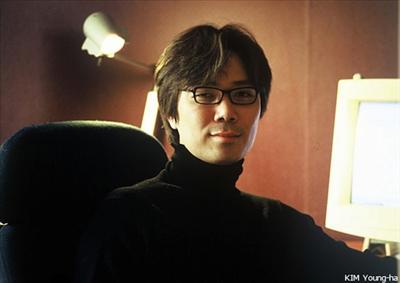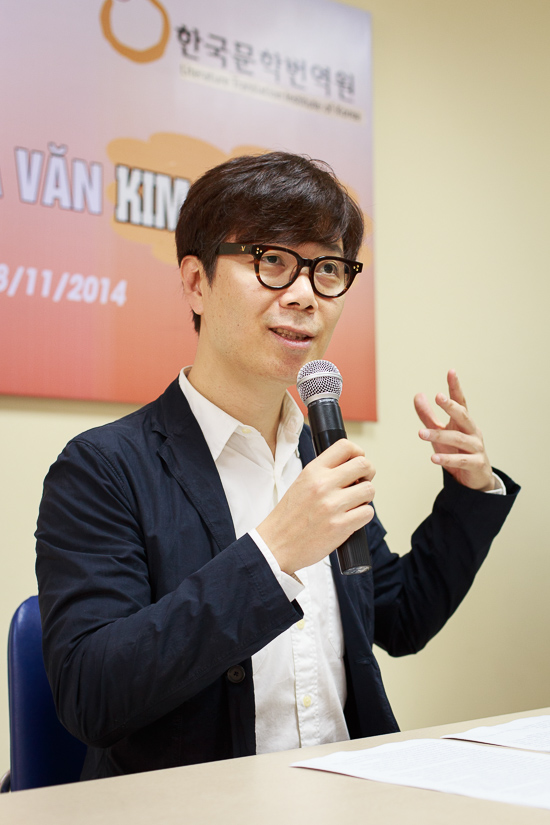
As his father participated in the war in Vietnam, Kim Young Ha had a lot of sentiments for this country. Vietnam was the first foreign country on which his father set foot and he also brought back artifacts that reflected Vietnamese culture. Vietnam shared similarities with South Korea as both countries went through war and had to fight for their independence. He was thus grateful for his works were translated into Vietnamese and published in a country he only knew of through Ao trang Sai Gon (Sai Gon’s white dress).
Having been through both wartime and peace, Kim was fully aware of the differences between two periods. Deep down in his heart was an image of a poor young soldier surrounded by dead buffaloes, reflecting what was quite in contrast with today’s modernity. Kim said that Vietnam today also changed dramatically from what he knew of through Ao trang Sai Gon. Particularly, he found resemblances between his works which dealt with sorrows during peacetime with The Sorrow of War by Bao Ninh, for example. These works revealed the naked and vivid truth of a modern life where rapid economic growth was coupled with traps and stalemates. One of the negative aspects of modern life reflected in his literature was suicide which was beautifully captured in his work I Have the Right to Destroy Myself.

Photo: Thanh Long
Last but not least, through literature, Kim Young Ha wanted to convey two messages. The first was that Korean culture not only existed in what were obvious such as film and music but also in literature. What we observed in literature might be quite different from in movies. The second was that literature could serve as bridge between two cultures, helping to erase differences and misunderstandings and creating new spaces for mutual understanding in a comprehensive manner. This view was also shared by Bao Ninh and all of the audiences.
Kim Young Ha is a Korean writer whose works have received many domestic awards and largely enjoyed by both Korean and international readers. He was nominated by Moonji as “one of the leading young writers of 21st century Korean literature”. One of his notable works translated into Vietnamese was Nobody Knows What Happened.
Author: Tran Minh
Reader Comments
Newer articles
Older articles